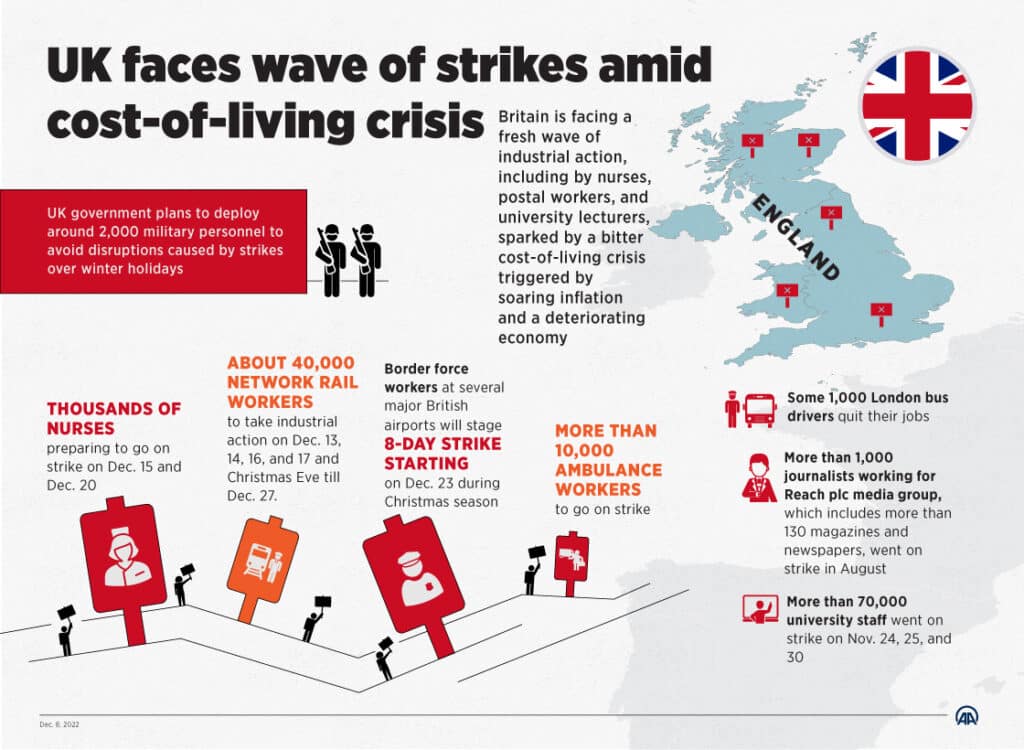The UK’s economic crisis got worse on Tuesday when railway workers went on strike, a key manufacturing indicator pointed to a worsening downturn, and economists warned that the country faces the deepest recession among advanced economies.

The five-day rail strike stopped all transportation across the country and was a taste of what would come when nurses and ambulance drivers went on strike.
The strikes stress an economy is already struggling because of a lack of workers and high inflation. A poll of analysts by the Financial Times found that the UK is on track to have the longest and deepest growth slump among the top industrialized economies in 2023. Consensus Economics has predicted that the UK’s gross domestic product (GDP) will drop by 1% in 2023, while the Eurozone will drop by 0.1% and the US will grow by 0.25%. In the second half of 2022, the UK economy did not do as well as it should have.
“Britain is in stagflation, with inflation going up, growth going down, productivity going down, and business investment going down,” Tony Danker, the head of a business lobbying group, said last month.
Also on Tuesday, S&P Global reported that manufacturing activity in Britain dropped to its lowest level in 31 months in December. “The UK manufacturing sector ended 2022 on a weak note, with output, new orders, and employment all falling at faster rates,” the survey found.
ALSO READ: What is an economy? – How economy works?
UK Gloom Deepens Amid Strikes
Many economists think the economy will remain weak if the Bank of England keeps interest rates high to fight inflation. After a 0.7% drop this year, AXA Investment Managers think growth will be 0.8% in 2024. This year, the government’s own forecasting office predicts that the GDP will fall by 1.4% and that living standards will fall by a record amount.
Consumer confidence is lower than in 2008, which adds to the feeling that the economy is in bad shape. Because the UK relies so much on natural gas and doesn’t have enough gas storage space, electricity prices have gone through the roof.
The conservative government led by Prime Minister Rishi Sunak has cut spending to stop the economy from falling so quickly.
In a gloomy New Year’s message to the country, he said, “I’m not going to act like all our problems will go away in the new year.”
Sunak became prime minister in October. He took over from Liz Truss, who was in charge for only 50 days. Before Truss changed the policy, her focus on cutting taxes caused UK bond yields to rise quickly, and the International Monetary Fund criticized her in a rare move.
ALSO READ: The Top 5 Stock of 2022
